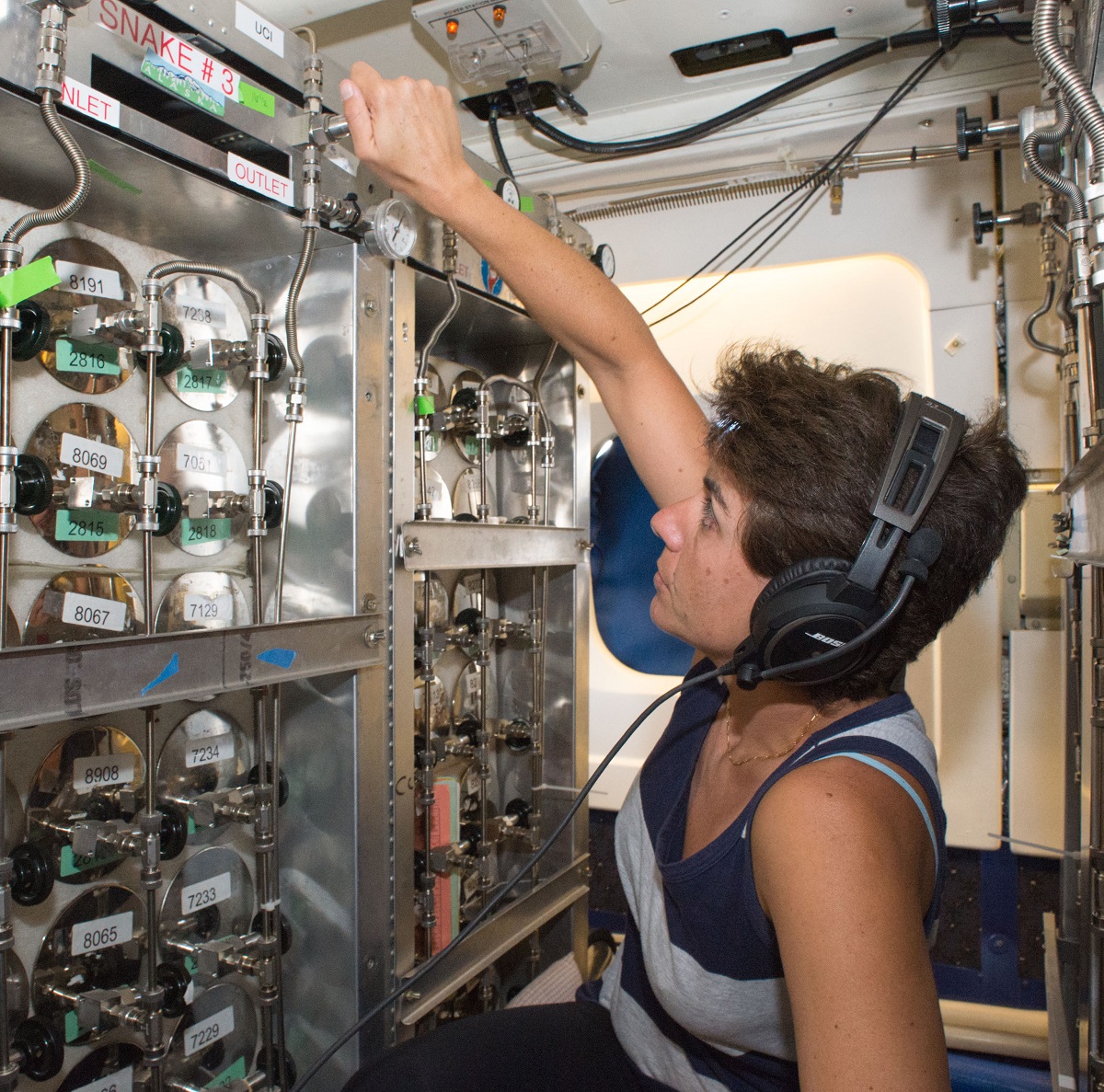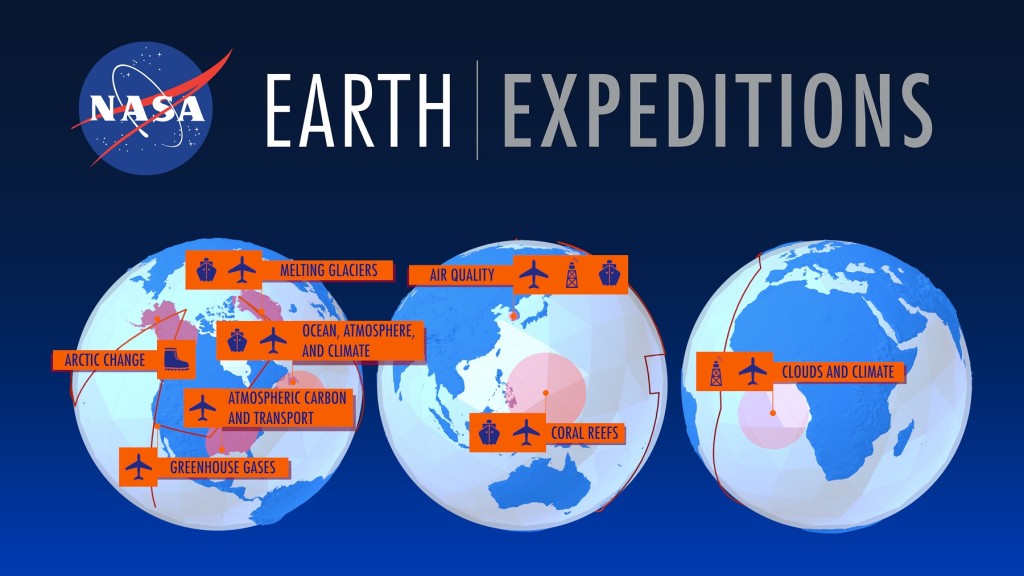by Steve Cole / WASHINGTON /
Over the next six months this blog will take you on a globe-circling journey of exploration. You’ll travel alongside scientists who are pushing back the frontiers of what we know about how our planet works.
With a collection of innovative instruments and intricately choreographed experiments adapted to the vagaries of the natural world, they will set out by air, sea and sometimes even foot. Their mission: probing the melting edges of the Greenland ice sheet, the health of coral reefs in the South Pacific, the shifting Arctic ecosystems of Alaska and much more.
This type of scientific fieldwork has long enriched the planet-wide science that NASA pioneers with its fleet of satellites orbiting Earth. Our goal: to increase our understanding of our home planet, improve lives and safeguard our future. With data from space, air, land and sea we help scientists around the world tackle fundamental questions critical to human life: How is Earth changing? What causes these changes? How will Earth change in the future?
Right now NASA is in a particularly busy period of fieldwork. We have eight new major missions heading into the field over the next several months that will take scientists literally around the world on a wide range of science investigations. This blog will give you a front row seat as we report from the field with video, photos and first-hand accounts.
You can also follow along on Twitter (@NASAEarth, @NASAAirborne) and Facebook (NASA Earth, NASA Airborne Science Program); hashtag #EarthExpedition. And next month we launch a new “Earth Expeditions” series on NASA Television and YouTube.
Our first expedition is in the field right now. Oceans Melting Greenland (OMG) is conducting an airborne survey of the ice edge around the entire coast of Greenland. OMG is probing the extent to which the ocean is melting the edges of the ice sheet from below.
The OMG team is in Keflavik, Iceland, now to start surveying Greenland’s eastern coast. If all goes as planned (and with fieldwork in remote locations, the best-laid plans can quickly change), we will start posting their first reports here tomorrow or Friday. So be sure to check back in with us.


